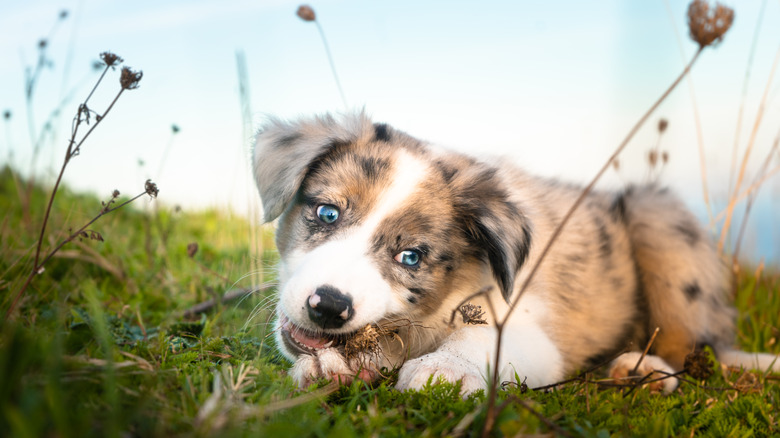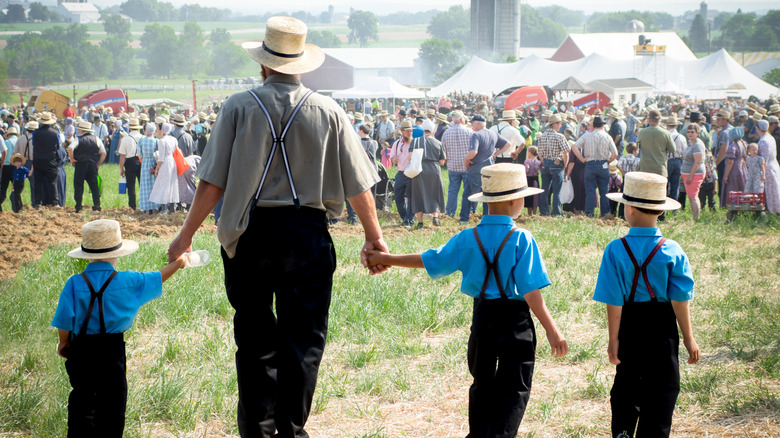The Truth About Amish Puppy Mills
The Amish are largely followers of the Old Order Amish Mennonite Church, per Britannica. This religious order is named after Jakob Ammann, a leading Mennonite who lived from around 1644 to 1730.
Like many such groups, everyday life for the Amish has its rules and regulations but is frequently misunderstood by others. Britannica goes on to explain that the characteristic Amish tradition of shunning technological innovation is not universal. Around 1850, a divide began to appear between those of the faith who wanted to continue in this vein and those who wanted to embrace change — both the technological and social varieties. This difference of opinion is at the root of the creation of the disparate Mennonite Church and General Conference Mennonite Church.
For better and for worse, the world in which we live is changing rapidly for all of us. Whether Amish or not, whether willingly or not, we have no choice but to accept this and react to it however we can. Part of the Amish response to these changing times, it seems, has been the creation of controversial puppy mills.
What of the animal-loving Amish?
Naturally, of course, the Amish are far from the only ones associated with puppy mills. According to PETA, these mills can consist of anything from kennel complexes to areas with no protection from the elements at all. They have designated spots where female dogs are bred for their puppies, which are then sold to pet stores and so on. Sadly, the truth is that profit can be considered the priority, often far over the welfare of the animals.
According to The Puppy Mill Project, there are around 10,000 such places in the United States alone, and two million puppies are bred in them each year. And it seems that the Amish are at the heart of some of the country's busiest puppy mills in areas such as Pennsylvania and Ohio. Dog auctions are said to be particularly popular among these communities, with dogs sold then and there. Tragically, they are usually suffering from illness or malnutrition from the cramped conditions in which they are often kept.
Amish Dog Breeders suggests that the breeding and raising of dogs is another facet of the long-held Amish links to animals and agriculture and that the community advocates for responsible breeding. This is more reflective of the moral and righteous notions of the Amish and their faith. Per Ranker, though, the lure of the profitability of Amish puppy mills seems to have risen with the lack of demand for their agricultural efforts and the rising expense of land suitable for their needs.

